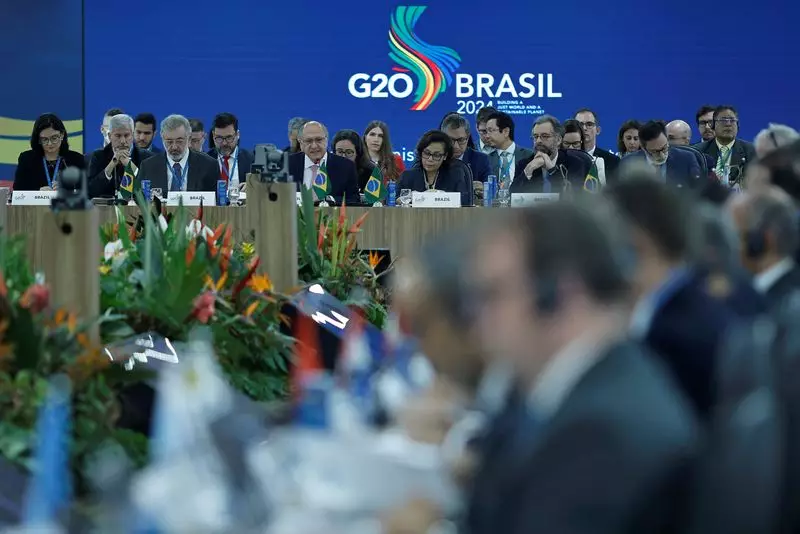In a significant gathering hosted in Brasília, the G20 trade ministers made strides towards reinventing international trade. Their commitment to sustainable development and the inclusion of women in the global economy marks a pivotal shift in how these nations view trade as a tool for empowerment. By aligning their agendas with the overarching goals of sustainable growth, the ministers highlight a growing realization that trade policies must transcend mere economic exchanges to foster social equity and environmental stewardship.
This initiative, sparked by Brazilian Vice President Geraldo Alckmin’s insistence on the critical inclusion of women in trade discussions, reflects a broader understanding of economic participation. It underscores the acknowledgment that women’s contributions are essential to achieving balanced and comprehensive growth. The proposal, which will be presented to G20 leaders at their upcoming summit in Rio de Janeiro, signifies an important cultural shift within the group, embracing diversity as a dynamic component of international trade.
Another focal point of the meeting was the urgent need for reform within the World Trade Organization (WTO). The ministers concurred that a modernized conflict resolution system is essential for addressing the complexities of today’s trade environment effectively. Alckmin emphasized the consensus on creating a “more agile and effective” framework, crucial for rapid resolutions that can adapt to the fast-moving landscape of global commerce.
The ongoing discussions about WTO reform tie into a larger narrative about the need for multilateral institutions to evolve in response to contemporary challenges. As Brazil prepares to host the COP30 climate talks, the ministers’ commitment to establishing a more robust, rule-based trading system resonates with the global call for transparency and fairness in trade practices. It is a fundamental step toward fostering an environment that not only encourages commerce but also protects the planet.
While the meeting yielded constructive outcomes, it also navigated the turbulent waters of international politics. Discussions on geopolitical issues such as the conflict in Ukraine and tensions in Gaza were both present and contentious, reflecting the complexities that often intertwine with trade discussions. The willingness to address these topics, albeit with caution, indicates that G20 members recognize the moral dimensions of trade and investment.
Notably, the ministers successfully maintained unity despite varying opinions on these divisive issues. An Asian diplomat reported that while there were disagreements during the drafting process, a collaborative spirit ultimately prevailed, allowing for a unified stance on the inclusion of women in trade, a highlight of their discussions.
As the G20 prepares for its summit in November, the initiatives agreed upon in Brasília represent a forward-looking approach to global trade. By emphasizing sustainable practices and inclusivity, the world’s largest economies are setting a proactive agenda for confronting global challenges. The focus on women’s inclusion in trade and the endeavor to reform the WTO signals that the G20 acknowledges the critical role of gender equity and robust institutions in achieving lasting development.
The events in Brasília remind us that international trade is not merely about markets and profits; it is about enhancing the quality of life for people across the globe. Through collective action and a commitment to inclusivity and sustainability, the G20 is poised to lead the way towards a more equitable and just global trading system.

